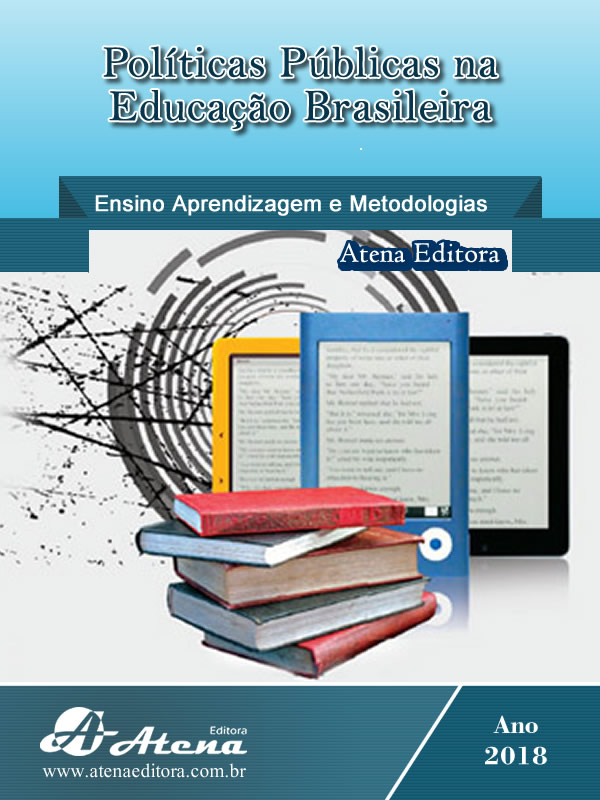
A ELABORAÇÃO DE JOGOS EDUCATIVOS COMO RECURSO PARA O ENSINO E APRENDIZAGEM DE LÍNGUA INGLESA
Em decorrência do mundo tecnológico e de programas como “Idiomas
sem fronteiras”, para a internacionalização de universidades, a língua inglesa (LI)
continua em ascensão no cenário educacional brasileiro. Admitindo o prestigiado
lugar dessa língua na sociedade e seu papel ainda pouco explorado em instituições
de ensino médio, o estudo que expomos é resultado do projeto English all Around,
desenvolvido numa escola estadual de ensino médio em Maracanaú - Ceará. Como
ações do dito projeto, podemos citar a inserção do aluno em um ambiente
linguístico com maior input visual, auditivo e sinestésico. Com este trabalho,
propusemos a criação de jogos educativos pelos alunos, a fim de fornecer materiais
diferenciados de ensino à comunidade escolar, melhorando sua participação em
sala de aula. Apresentamos dados quantitativos e qualitativos concernentes à
análise dos materiais adquiridos. Primeiramente, explicamos o conceito de jogo
(ALMEIDA, 2014; TRISTÃO, 2010) e falamos sobre a criação de materiais didáticos
para o ensino e aprendizagem de LI (SARACENI, 2003; TOMLINSON, 2001;
RICHARDS, 2005), orientando sobre a finalidade da atividade. Posteriormente,
dividimos os alunos em grupos, os quais deveriam apresentar um jogo na semana
seguinte para toda a classe, tratando de seu funcionamento e explicando suas
regras. Como estabelecido, os estudantes narraram o processo de criação,
estruturação e prática de seus jogos. Salientamos que os alunos foram
protagonistas, proporcionando, de modo informal e lúdico, o estudo de aspectos
linguísticos em LI. O material produzido pelos alunos foi disponibilizado na escola
para toda a comunidade.
A ELABORAÇÃO DE JOGOS EDUCATIVOS COMO RECURSO PARA O ENSINO E APRENDIZAGEM DE LÍNGUA INGLESA
-
DOI: Atena
-
Palavras-chave: Ensino de Língua Inglesa, Jogos, Elaboração de Materiais Didáticos.
-
Keywords: Teaching English Language, Games, Elaboration of Didactic Materials.
-
Abstract:
As a result of the technological world and programs like "Languages
without borders", for the internationalization of universities, the English language
(EL) continues to rise in the Brazilian educational scene. Assuming the prestigious
place of this language in society and its role still little explored in high schools, the
study we present is the result of the Project English all Around, developed in a public
high school in Maracanaú - Ceará. As actions of this project, we can mention the
insertion of the student in a linguistic environment with greater visual, auditory and
synesthetic input. With this work, we proposed the creation of educational games by
students in order to provide differentiated teaching materials to the school
community, improving their participation in the classroom. We present quantitative
and qualitative data concerning the analysis of the acquired materials. Firstly, we
explain the concept of game (ALMEIDA, 2014; TRISTÃO, 2010) and talk about the
creation of didactic materials for the teaching and learning of EL (SARACENI, 2003;
TOMLINSON, 2001; RICHARDS, 2005) activity. Subsequently, we divided the
students into groups, which were to present a game in the following weeks for the
whole class, dealing with its functioning and explaining its rules. As established, the
students narrated the process of creating, structuring and practicing their games.
We emphasize that the students were protagonists, providing, in an informal and
playful way, the study of linguistic aspects in EL. The material produced by the
students was made available at school for the whole community.
-
Número de páginas: 15
- LARISSE CARVALHO DE OLIVEIRA


